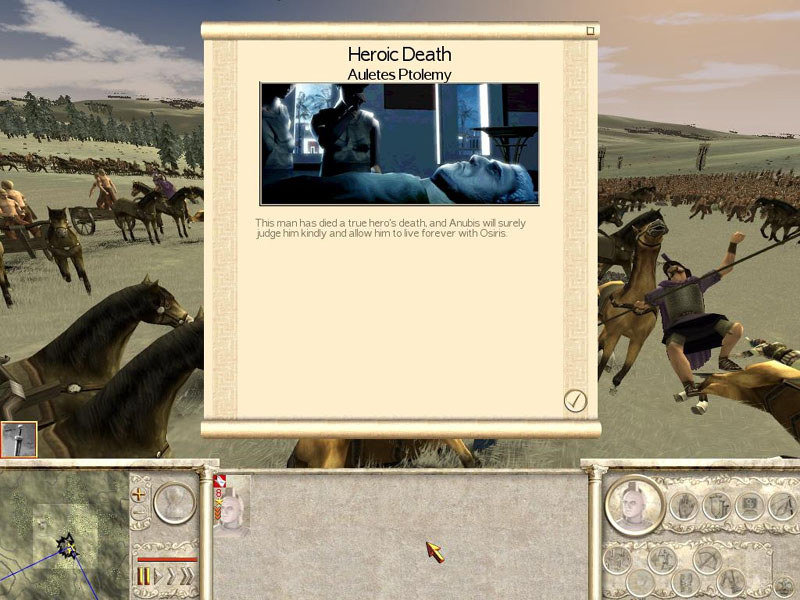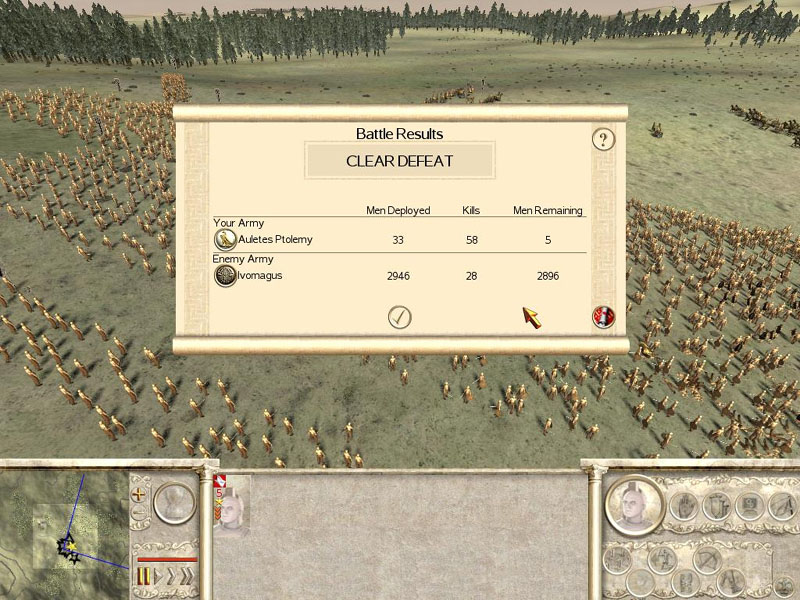Part 5
For ten years after the death of Philadelphos Ptolemy, the last Pharaoh of Egypt, the Ptolemaics had been led by Heruben Ptolemy. A youth, a whelp who had assumed the position of head of the family unceremoniously. There had been no time for coronation, for the week of celebration and games and prayer; the Seleucids had driven their armies without rest across the desert. For the Ptolemaics there had only been time for escape.Heruben, raised to believe that one day he would be crowned pharaoh, had found himself a king without a kingdom, leader of the rabble of refugees who still pledged their loyalty to the Ptolemaics, and had followed him to the far corners of the earth. Here, the Ptolemaics had fought for their lives against the elements and wildmen alike. They had suffered catastrophic casualties so that they might have a place in the world.
And just as it was seeming the last chapter of the Ptolemaic Bloodline had been written, they had won. Now, nearly a decade after their flight from Egypt, thousands of men and women, both Ptolemaic and Britonic lined the summer-lit streets of Calleva, craning their necks to see their ruler and his glittering chariot procession as it rode towards the governor's palace.
As Heruben took in the sights around him, the thousands of hopeful faces, from his view on the royal chariot, he continued to reflect on the plight of his people. So many of them had died for him to see this day, the day that Heruben Ptolemy would be crowned Pharaoh of Britannia and King of the Britons. He looked at all the faces of the Briton women around him. How many of them had he made widows? So much death, but what else could he have done against the overwhelming might of the Seleucids?
The chariots reached the palace. Heruben silently vowed to himself that he would bring glory and strength to the name Ptolemy, for to do any less would be an unsightly waste of all the lives that had been sacrificed to give him this second chance. He ascended the steps, hewn from the gray rock of the british hills, as trumpets around him blared and the ranks of his elite Hetairoi parted. In one hand, Heruben was presented the Heka, the ruler's scepter. In the other, he was given a Nekhakha fly whip, a symbol of his might and authority.
He turned to the thousands who stood below him silently, and brought the two symbols together, raising them above his head in unison. The Khepresh, the blue war crown was placed on his head, the golden vulture on it's crest glinting in the sun.
Heruben Ptolemy was now Pharaoh Heruben Neos I.
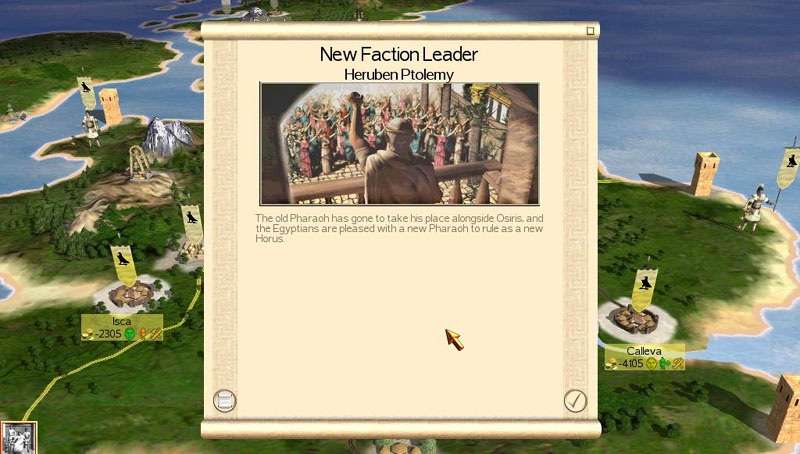
Fifty miles north, Auletes Ptolemy and Sekoundos Philadelphos had begun the begun the push northward with the third army.
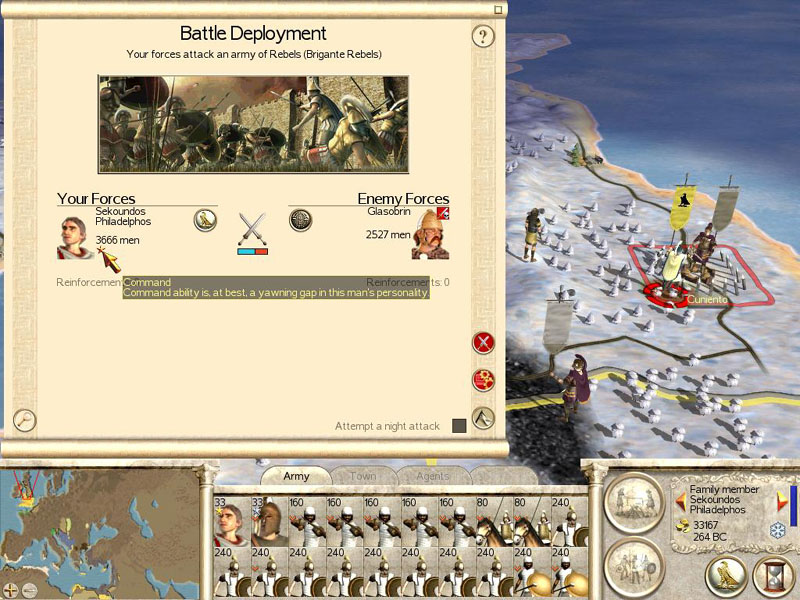
Sekoundos wiggled in his saddle, trying to keep himself from shivering in front of his troops. Until earlier in the week, the winter had been quite mild, feeling more like an extension of summer than the season that had ravaged the Ptolemaics in their earlier years. Yet, Sekoundos knew that while his kinsmen to the south were settled safely in the warm houses of Isca and Calleva, the only shelter he and his army could have this winter was in front of them.
Beside him, Auletes Ptolemy stared hungrily at the city, through the massive helm he wore. "I don't know about you, Sekoundos, but I'm looking forward to the next generation of my line having red hair."
Ignoring his disgust with Auletes, Sekoundos turned and addressed his troops. "In front of you lies your winter accommodation. Warm houses, taverns, firepits and grog!" A slight smile crossed Sekoundos chapped lips. "If, in the course of your entrance, you find the city's inhabitants to be less than hospitable, then make them hospitable! Go forth and conquer in the name of Ptolemy!"
The men cheered. Sekoundos wasn't a Ptolemy, though he was a part of the royal family through marriage. He was one of them, and a better commander than the perverted Auletes.
"Rams!" He belted out loud, "You know what to do. I want seven hundred men supporting each ram, in three segmented phalanxes per ram!" His men complied immediately, glad to be moving again in the cold.
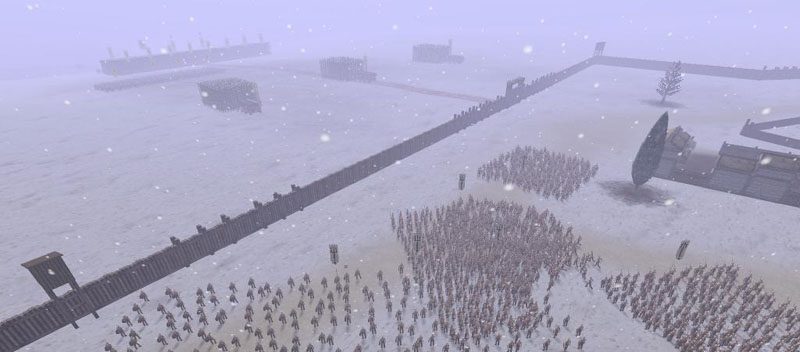
Sekoundos knew that was why he must drive the defenders away from the walls before the rams had smashed them down. "Machimoi! Fire at will! Let them eat iron!"
As shafts and corpses alike peppered the ground around them, the Brythons slowly backed away from the walls, which had now started to buck, clatter and splinter.
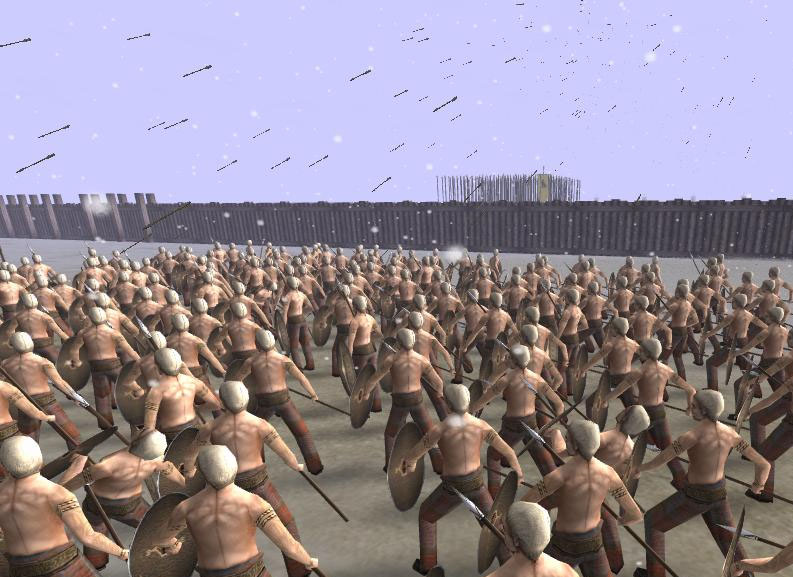
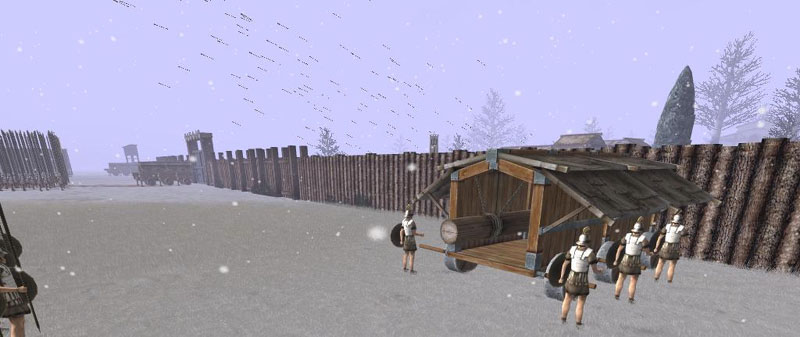
Perhaps the sight of the redheaded general and his heavy chariots riding towards them, bellowing curses and commands frightened the the retreating defenders more than the Ptolemaic conquerers on the other side of the walls, or perhaps they had simply seen their folly. Either way, the Britons returned to the walls in full force, Glasobrin at their heels, frothing and cursing.
They ran back, but this time met the tips of a hundred spears. The Ptolemaics had breached the perimeter and reformed into a thinner, wider formation.
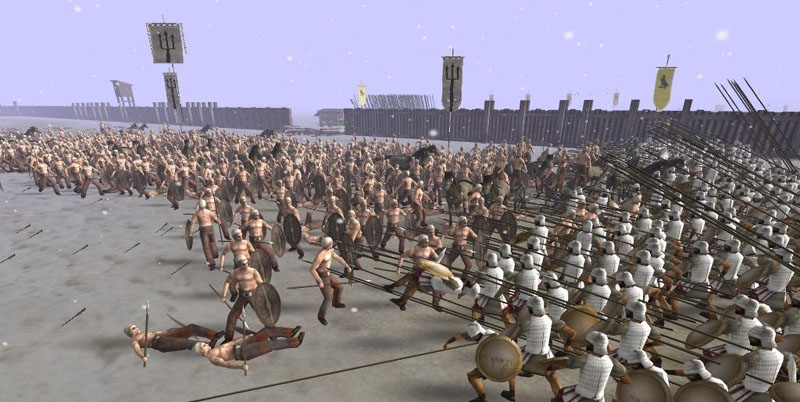
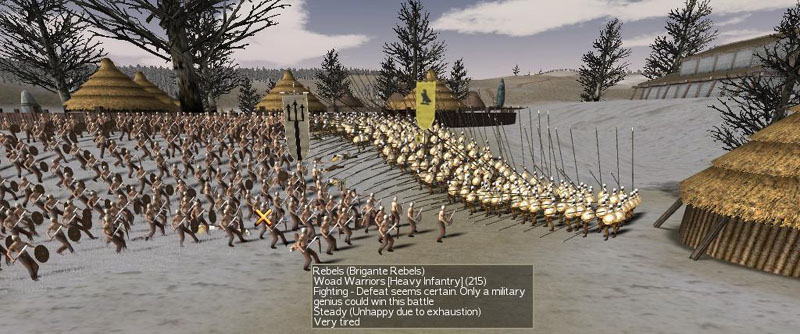
The gruesome death of Glasobrin, combined with the force of his final words, triggered the fastest mass rout that Sekoundos had ever seen. So many barbarians ran for the village square, their last hope for defense, that they broke right through the phalanx units guarding the street. Spears were snapped or discarded as the Ptolemaic infantry drew their swords and threw themselves into the melée.
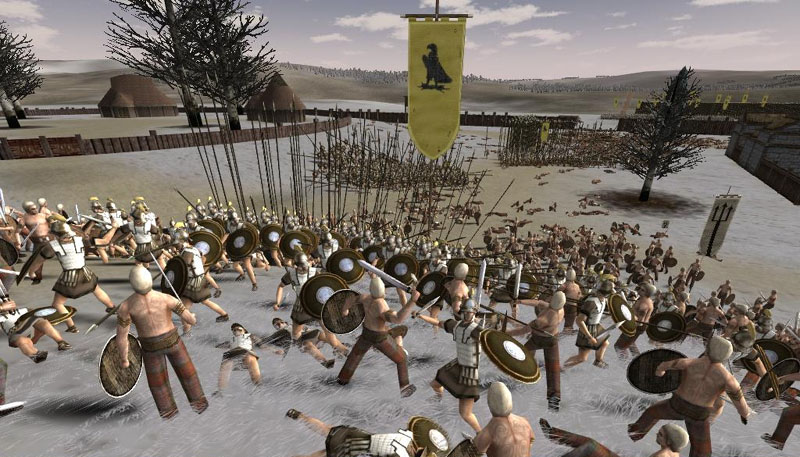
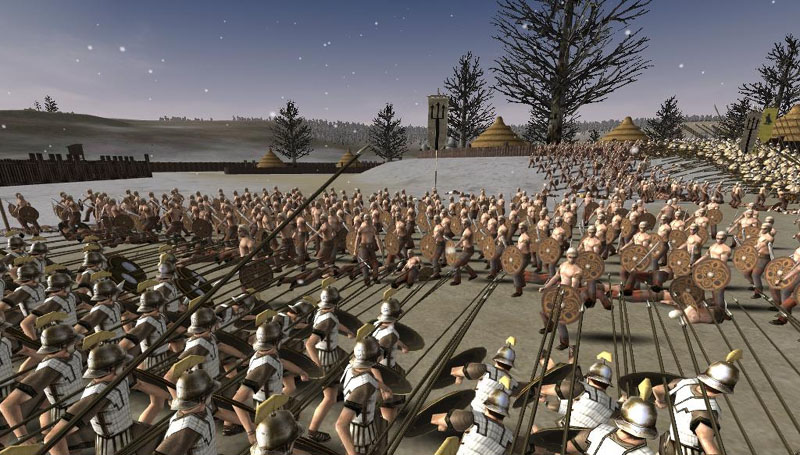
The defenders on the village square were fighting to the death against the massed spearmen when they saw the enemy ranks part, and two hundred men on horseback slammed into the fray.
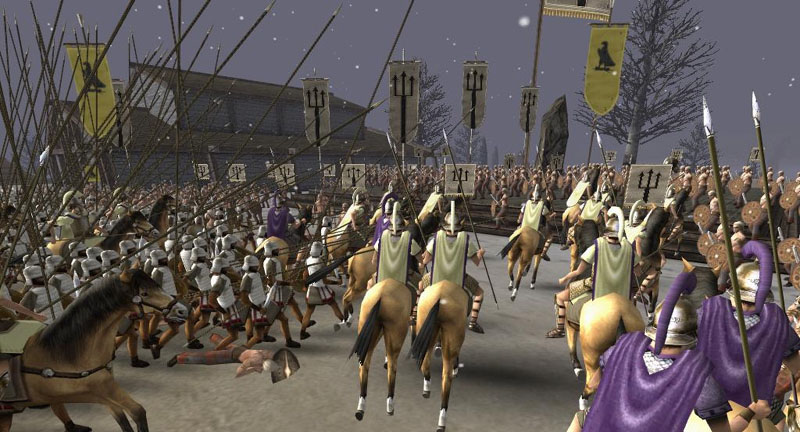
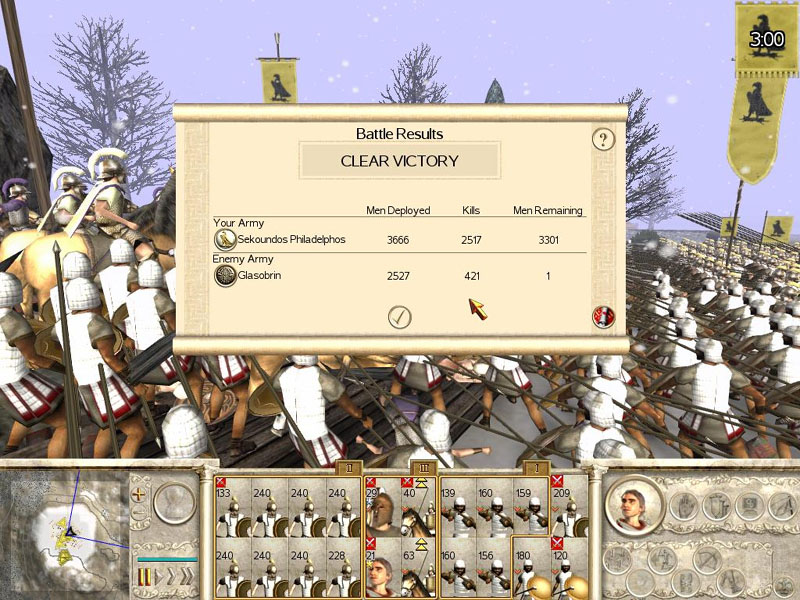
"Good." Auletes smiled slightly, marveling at the ruthlessly efficient killing machine his army had become. "Take me to him."
* * * * *
Four hours later, in the cold night air, a knife glinted under the moonlight and a man cried out. Auletes stood before the prisoner, who had been tied to a thick support beam, with a dagger in one hand and a human ear in the other. The interrogation had been brief and to-the-point, much to Auletes' disappointment. He had learned, with his rudimentary understanding of Gaelic, that the prisoner had been one of the captains of the garrison and that his name was Ivomagus.
"You are a cursed dog!" The bleeding prisoner spat at Auletes.
"Vortigern killed my brother, barbarian," Auletes traced the man's jawline with the tip of his blade, cutting ever so softly into his face, "and yet he hides in the North with his picts." He sheathed his blade, leaving a red line on Ivomagus' face. "I am done with you, Ivomagus. I have relished in your pain enough. My guards will escort you to the wilderness and turn you loose." Auletes turned and strode towards the door, pocketing the ear he had cut from his prisoner. "Go north. Tell Vortigern the sons of Ptolemy hunger for his demise."
* * * * *
"My recent forays north have uncovered heavy military activity along our border." Khu spoke quickly, his fingers flying over the map scroll as the Pharaoh listened intently. "The picts have even gone to the expense of maintaining a presence in the hills during the winter. Our goal, the fortified city of Dalriada, is within reach, but if we attempt a border invasion, we may incur heavy losses before reaching the city."
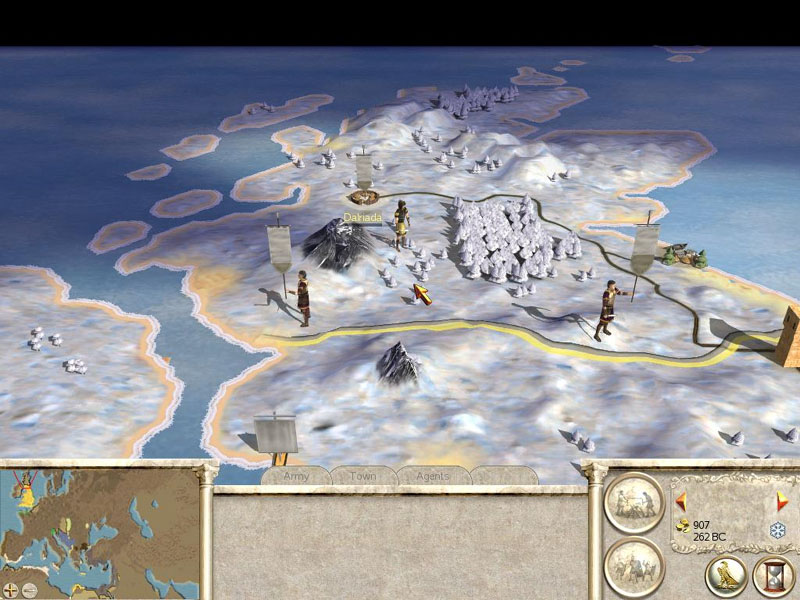
"Their written response was one word, my lord: 'If.'"
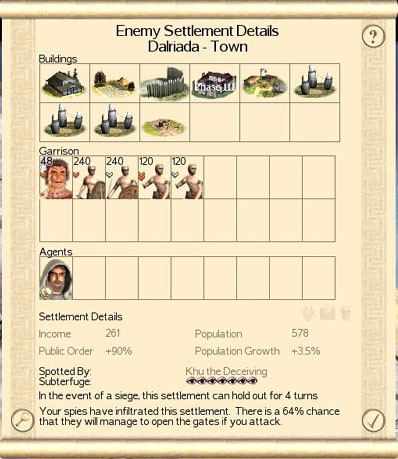
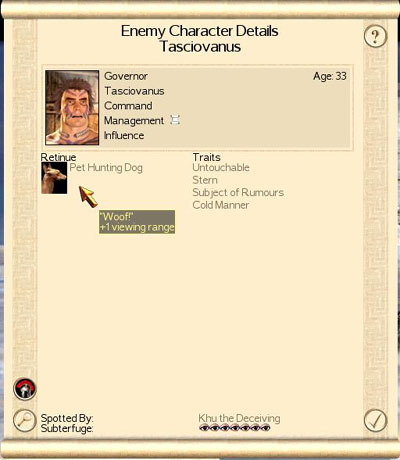
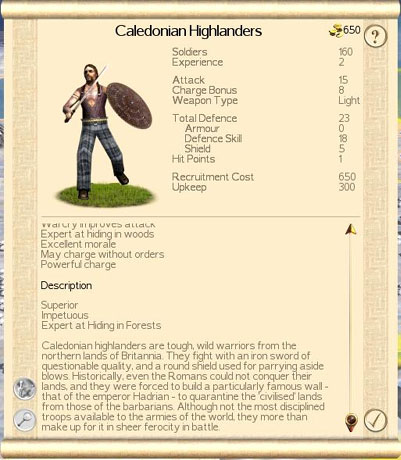
"A bold plan, my lord. I shall go meet them at Isca for the campaign."
"No, Khu, you won't." Heruben looked up from the map at his master spy, who had in the recent years lost his portly figure. Dark bags hung under his eyes and sores had opened where he had applied too much of the lead paint for disguise. "Khu, you look terrible. I want you to spend the rest of the year in the city, regaining your health."
* * * * *
With the spring, came news from egypt. The Seleucids had restored much of Alexandria to its former state, though civil unrest continued to permeate lower egypt. Rumors told of several minor uprisings against the Seleucids in the southernmost of the former holdings of the Ptolemaics.
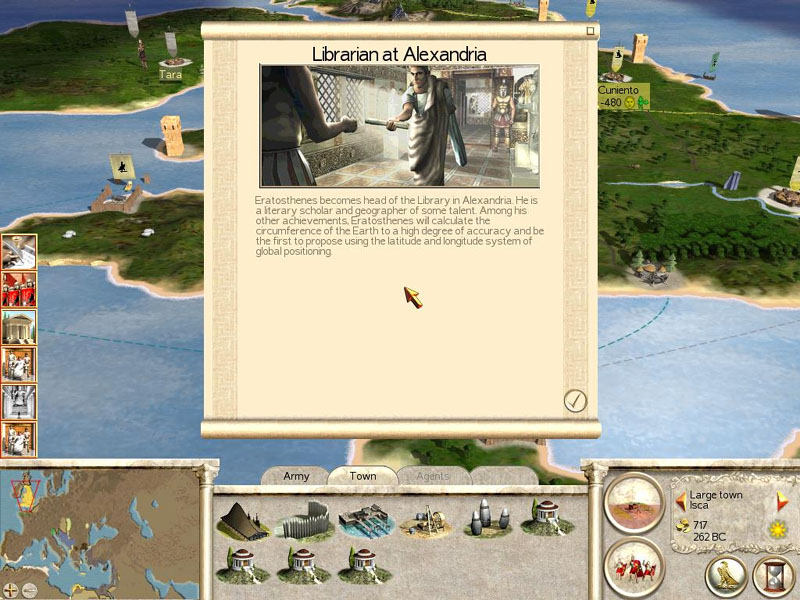
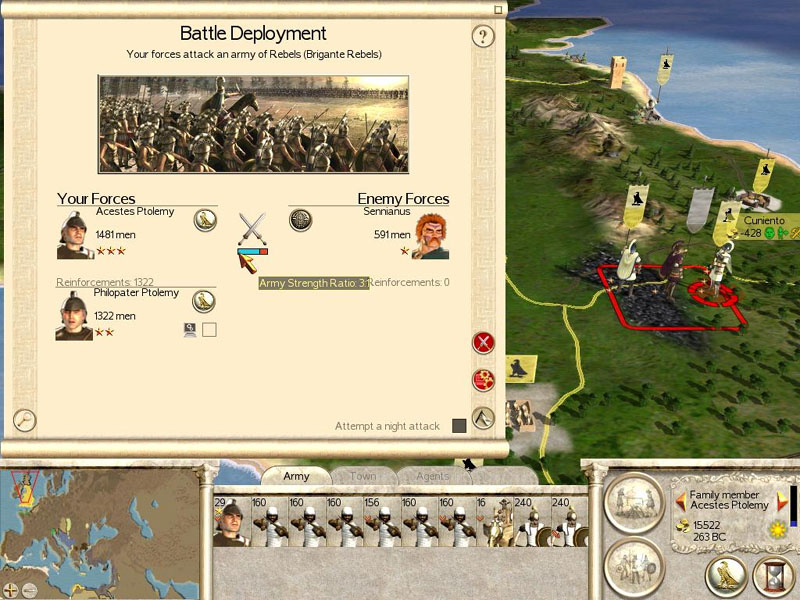

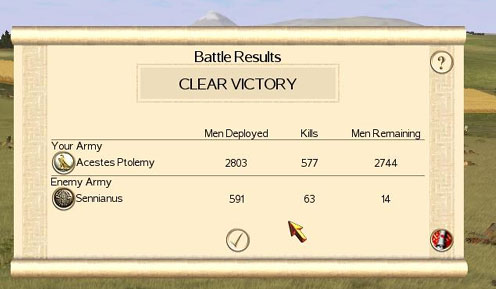
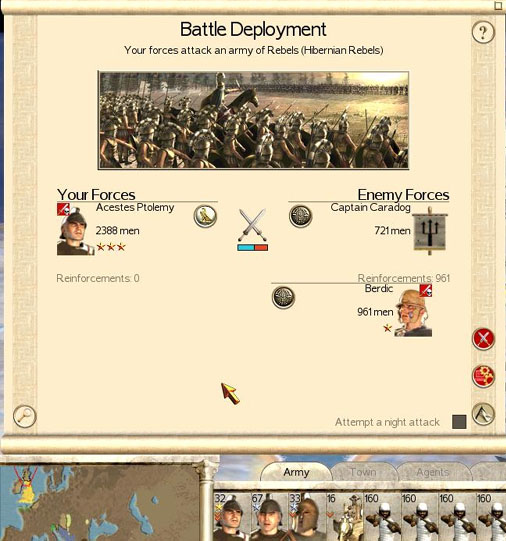
Once more, the enemy filled his field of vision.

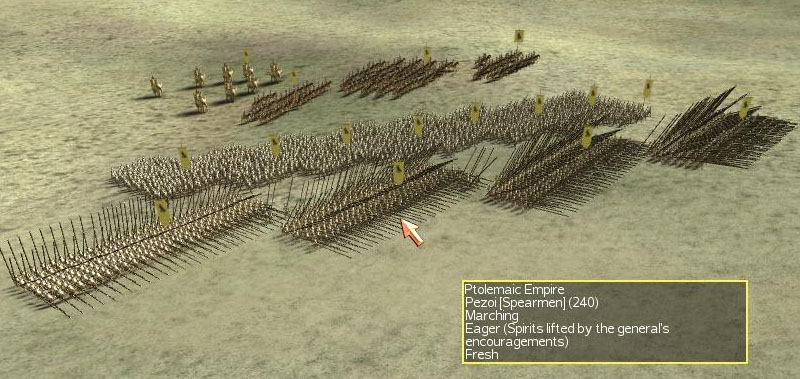
"Hold!" He called, and his army came to a halt, the pezoi forming a protective line of spears of shields in front of the archers. "Archers fire at my command!" The Hibernians (or was it Hirish, he wondered) had not yet summoned the will to charge, instead sending forth skirmisher units to probe the mettle of the Ptolemaics. "Volley!" He shouted, and a wave of flaming arrows arced into the slinger skirmishers.
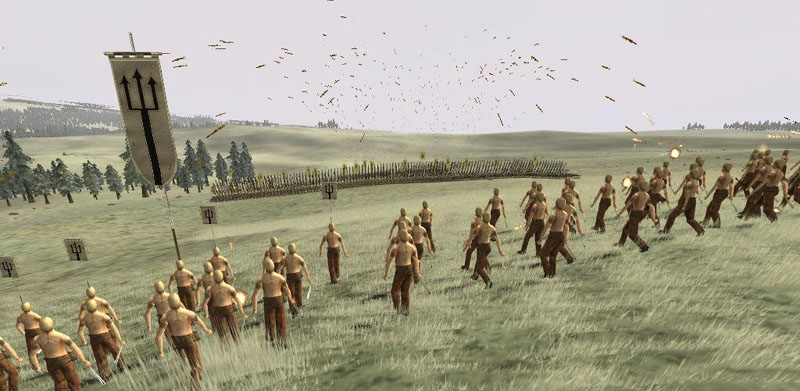
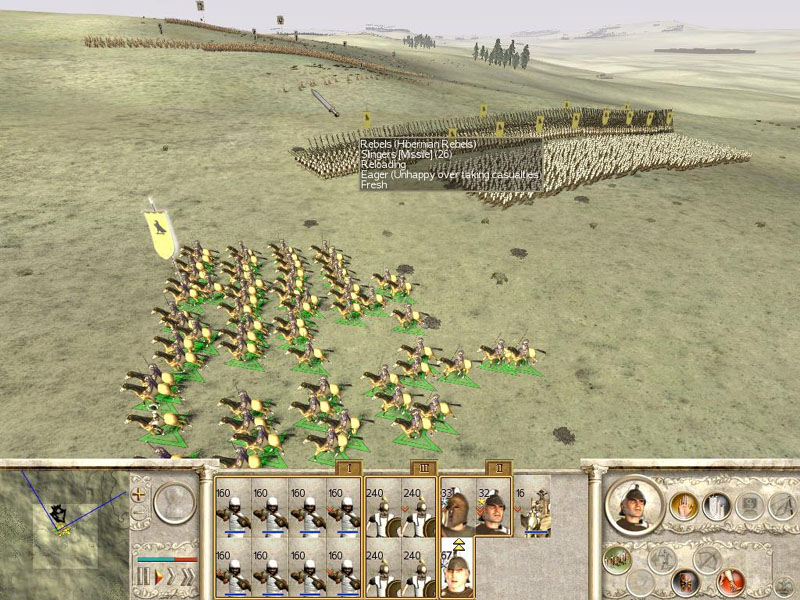
Sixty seconds later, Philopator and his guards were riding back as fast as they could, two thousand angry Irish Hibernians swarming behind them. Seconds before he was about to slam into their right flank, he had raised his spear and hurled a snowball into the enemy ranks. Now he was running like hell. "Fire at will!" He was yelling, despite the proximity. "Kill them! Kill them with fire!"
The archers complied, unleashing a firestorm of flaming arrows. A second sun briefly took to the sky as it filled so densely with flaming iron and wood that it was difficult to make out where one ended and the other began.
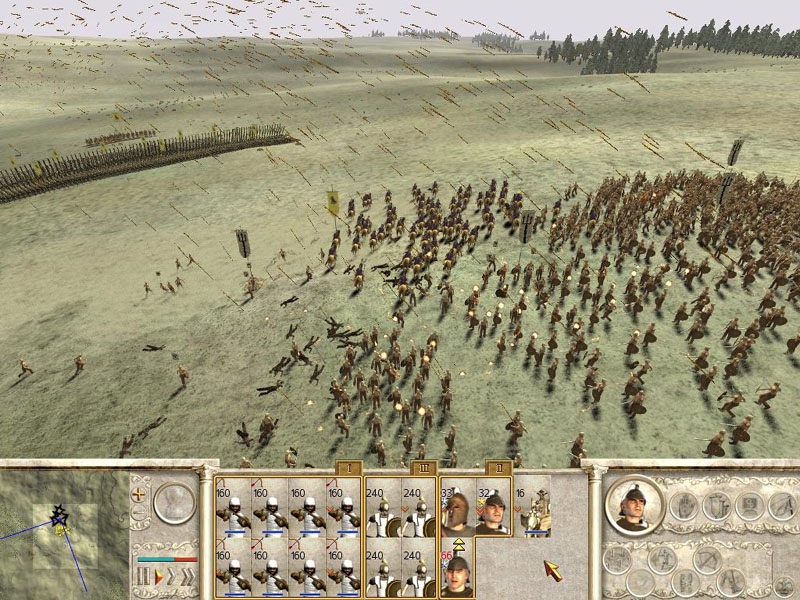
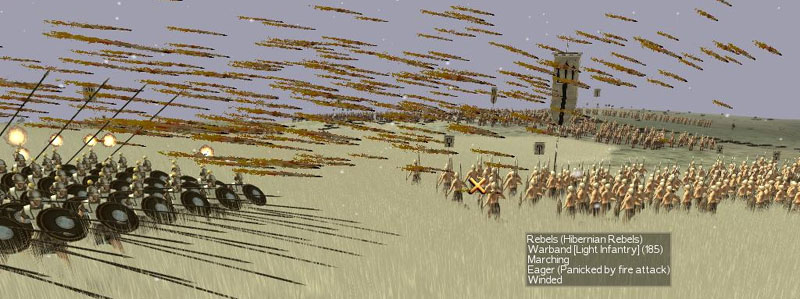
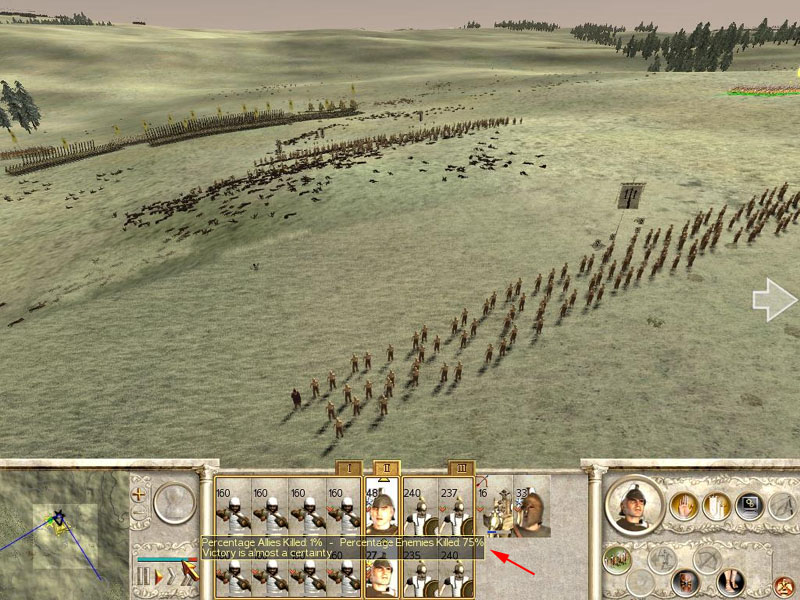
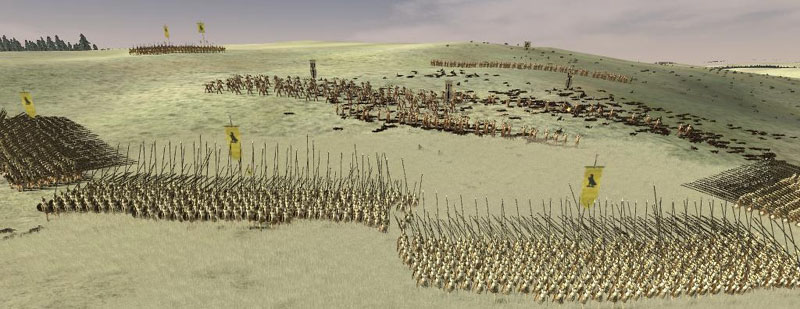
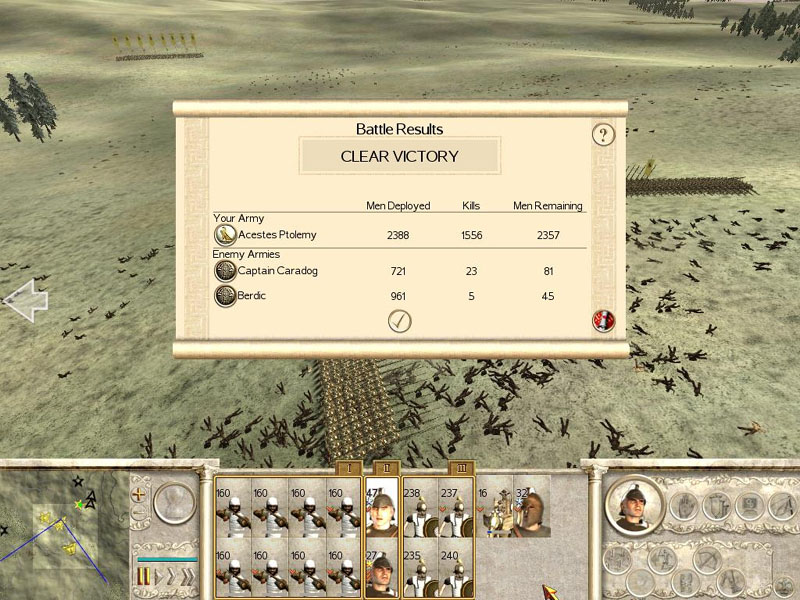
That evening, the city of Tara threw open it's gates and surrendered to the Ptolemaics. Hibernia, apparently, had been conquered.
* * * * *
"Damn" Auletes cursed his own stupidity. In the absence of the Pharaoh's master spy, the army had divided into many parts to construct watch towers and outposts in the countryside, to serve as early warning of an uprisal. That spring, Auletes had ridden south with his unit of bodyguards, and had stumbled upon a huge army of rebels. Already tired from the long march, he had been unable to flee before they engaged him. "Khu would never have missed this," he mourned.
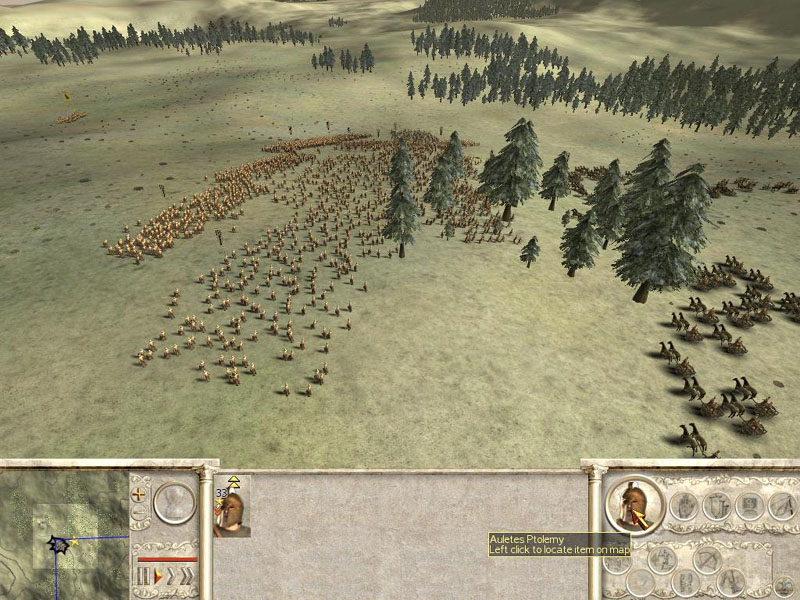

No. It couldn't be. Him? Oh, Anubis, why hadn't he killed this man when he had the chance?
The rebel general lifted his blade. With the first swipe, he severed Auletes' ear from his head, holding it near the stub where his own was missing, then high for his cheering soldiers to see. With the second swipe, the rebel general severed Auletes' neck.
